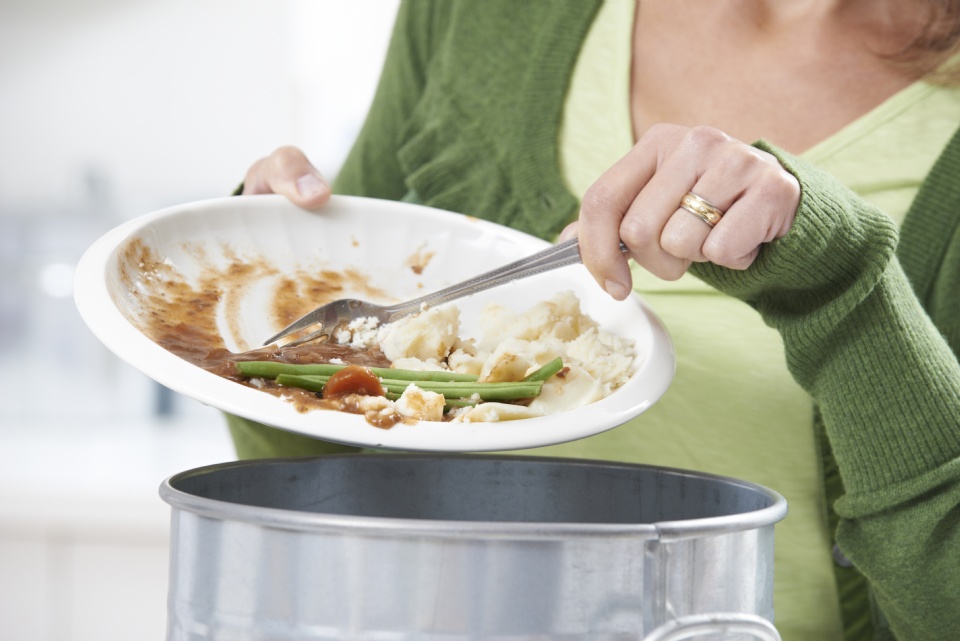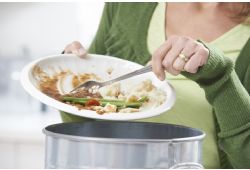Have you received your brown bin yet? The City of
Laval began its organic collection service in 2017 and now has plans to expand it
over the next year, eventually benefitting all buildings, with seven or fewer
units, by 2019.
So
far, at least one neighbourhood per electoral district has been benefitting
from the organic collection service. Every household in the chosen districts
has received a large brown bin, similar to the blue recycling bins, for the
collection of organic waste.
Throughout 2018, the City of Laval will be extending
this service to 46,000 new homes and will equip all households and eligible buildings
with large brown bins by 2019. This also includes a mini-bin for inside use,
and an information packet on how the service works, and what can and canít be
composted.
Of the 20 households surveyed around Laval, 13 have
already been using the organic waste collection service since 2017. Of the 13 participants,
10 say they are active users of the composting bin.
ďSince Iíve started composting, my trash consumption
has extremely decreased,Ē said Laval resident Dora Bellomo. ďIt took some time
getting used to it Ė knowing what you can and canít compost, just getting in
the habit of doing it, but itís a conscious effort we should be making.Ē
The City of Laval has prepared a list of items that
should or shouldnít be put into the compost bin. Unacceptable items include
liquid food waste, logs, glass, metal and plastic. On the other hand, fruits,
vegetables, tea bags, solid dairy products, meat and poultry, plants, flowers,
grass and small branches are ideal for composting.
ďThere are so many things that you can put in the
compost bin that I had no idea [about],Ē said Bellomo. ďSuch easy, everyday
things like coffee filters, tea bags, banana peels, that you can easily throw
in that bin instead of the trash.Ē
The bin collection takes place once a week, two days
after the scheduled recycling pickup. In the winter, however, collection only
takes place once every two weeks, since waste decreases in the winter with the
absence of green waste, and cold weather conditions make it easier to keep the
bin outdoors for longer periods.
Some surveyed residents have made complaints about
the City often missing a collection week, but according to the City of Laval,
the brown bin will not be picked up if it is not placed accessibly for the
truck, if there are unacceptable waste items in the bin, or if the bin is less
than half full.
For smaller households, filling the bin can take
quite some time, and the waste can start to smell if not picked up for several
weeks. It is important to take precautions, like leaving the bin in the shade,
sealing it tightly and not pouring liquids into the bin, in order to reduce the
smell. It is also recommended to keep meat and fish leftovers frozen and only
placed in the bin the day of pickup.
The collected organic waste then makes its way to
Mironorís facilities in the Laurentians, where it is converted into compost.
With its plan to expand organic waste collection, the City of Laval is well on
its way to meeting government requirement that all eligible buildings must be
equipped with organic waste collection by 2020.
For more information on composting services in
Laval, visit www.laval.ca.

 In The Latest Issue:Latest Issue:
In The Latest Issue:Latest Issue:
- Celebrating Community an...
- Celebrating the Unsung H...
- Understanding Newborn St...
Articles
Calendar
Virtual- ANNUAL TEACHER APPRECIATION CONTEST
- APPUI LAVAL
- ARTS & CULTURE
- CAMPS
- CAR GUIDE
- CCIL
- CENTENNIAL ACADEMY
- CHARITY FUNDRAISING
- CITYTV
- COSMOD‘ME
- COMMUNITY CONNECTIONS
- COVER STORY
- DINA DIMITRATOS
- …COLE SUP…RIEURE DE BALLET DU QU…BEC
- EDITORIALS
- …DUCALOI
- EDUCATION
- EMPLOYMENT & ENTREPRENEURSHIP
- F TE DE LA FAMILLE
- F TE DU QUARTIER SAINT-BRUNO
- FAMILIES
- FESTIVAL LAVAL LAUGHS
- F TE DE QUARTIER VAL-DES-BRISES
- FINANCES
- GLI CUMBARE
- GROUPE RENO-EXPERT
- HEALTH & WELL-BEING
- 30 MINUTE HIT
- ANXIETY
- CHILDREN`S HEALTH & WELLNESS
- CLOSE AID
- DENTAL WELLNESS
- EXTREME EVOLUTION SPORTS CENTRE
- FONDATION CIT… DE LA SANT…
- GENERAL
- HEARING HEALTH
- MESSAGES FROM THE HEALTH AGENCY OF CANADA
- MENTAL HEALTH
- SEXUALITY
- SOCIAL INTEGRATION
- SPECIAL NEEDS
- TEENS
- THE NUTRITION CORNER
- THE NUTRITION CORNER - RECIPES
- VACATION DESTINATION
- WOMEN'S FITNESS
- WOMEN'S HEALTH
- HILTON MONTREAL/LAVAL
- HOME & GARDEN
- INTERNATIONAL WOMEN'S DAY
- JAGUAR LAVAL
- LAVAL ņ V…LO
- LAVAL FAMILIES TV SHOW
- LAVAL FAMILIES MAGAZINE CARES
- LAVAL URBAN IN NATURE
- LE PARCOURS DES H…ROS
- LES PETITS GOURMETS DANS MA COUR
- LEON'S FURNITURE
- LEONARDO DA VINCI CENTRE
- LFM PREMIERES
- LIFE BALANCE
- M.P. PROFILE
- MISS EDGAR'S AND MISS CRAMP'S SCHOOL
- MISSING CHILDREN'S NETWORK
- NETFOLIE
- NORTH STAR ACADEMY LAVAL
- OUTFRONT MEDIA
- PASSION SOCCER
- PARC DE LA RIVI»RE-DES-MILLE-őLES
- P¬TISSERIE ST-MARTIN
- PIZZERIA LŐOLņ
- PLACE BELL
- PORTRAITS OF YOUR MNA'S
- ROCKET DE LAVAL
- SACRED HEART SCHOOL
- SCOTIA BANK
- SHERATON LAVAL HOTEL
- SOCI…T… ALZHEIMER LAVAL
- STATION 55
- STL
- SUBARU DE LAVAL
- TECHNOLOGY
- TEDXLAVAL
- TODAY`S LAURENTIANS AND LANAUDI»RE
- TODAY`S LAVAL
- WARNER MUSIC
- THIS ISSUE
- MOST RECENT
Magazine
Lavalís Brown Bin Effort to Reduce Waste
Articles ~e 105,7 Rythme FM 4 chemins Annual Teacher Appreciation Contest Appui Laval Arts & Culture Ballet Eddy Toussaint Camps THIS ISSUE MORE...
CONTESTS Enter our contests
CONTESTS Enter our contests
CALENDAR
Events & Activities
COMMUNITY Posts Events
PUBLICATIONS Our Magazine Family Resource Directory
LFM BUSINESS NETWORK Learn more
COUPONS Click to save!
COMMUNITY Posts Events
PUBLICATIONS Our Magazine Family Resource Directory
LFM BUSINESS NETWORK Learn more
COUPONS Click to save!
SUBSCRIPTIONS
Subscribe to the magazine
Un-Subscribe
E-NEWSLETTER Subscribe to our E-newsletter Un-Subscribe
WRITE FOR US Guidelines & Submissions
POLLS Vote today!
E-NEWSLETTER Subscribe to our E-newsletter Un-Subscribe
WRITE FOR US Guidelines & Submissions
POLLS Vote today!
ADVERTISERS
How to & Media guide
Pay your LFM invoice
SUGGESTIONS Reader's Survey Suggest a Listing
LFM About Us Our Mission Giving Back Contact Us
SUGGESTIONS Reader's Survey Suggest a Listing
LFM About Us Our Mission Giving Back Contact Us
 PICK-UP LOCATIONS
Get a copy of LFM!
PICK-UP LOCATIONS
Get a copy of LFM!
TERMS & CONDITIONS Privacy | Terms
ISSN (ONLINE) 2291-1677
ISSN (PRINT) 2291-1677
Website by ZENxDESIGN



 BY:
BY: 


Tweet
Share